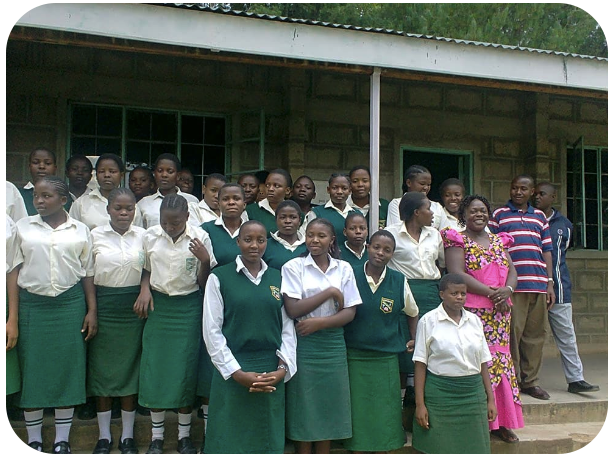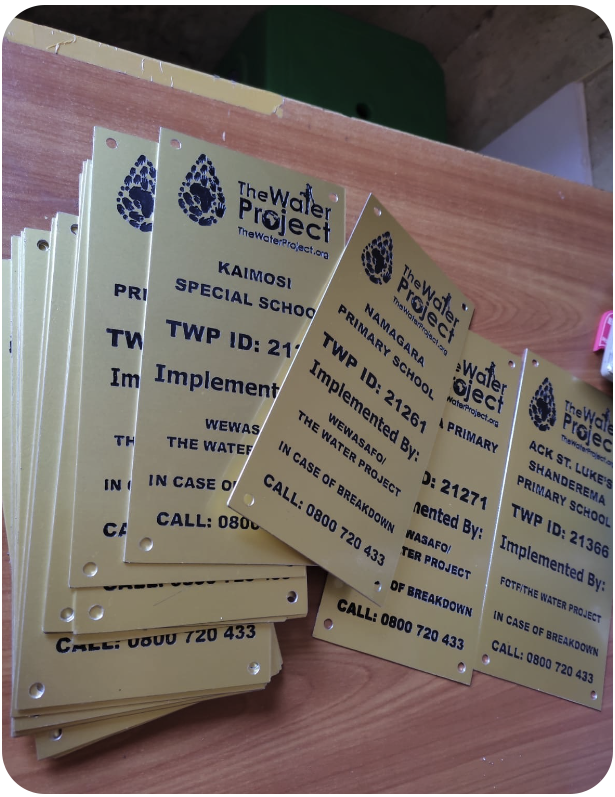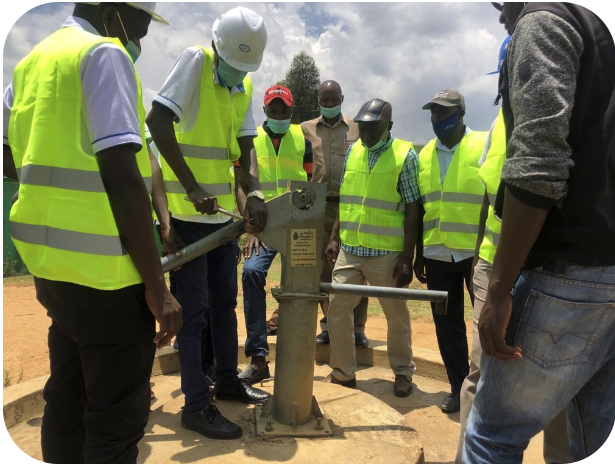The Faces and Facets of Reliability
By Director of Programs, Spencer Bogle
One of our core values at The Water Project is reliability. Reliability is one of those glorious terms that evokes a wide range of images that extend from a washing machine that never breaks down to a friend who is consistently available for a conversation with a drink when needed. So, my goal is to share what we mean at The Water Project when we talk about reliability. We strive to ensure reliable water access for communities, schools, and health centers in focused geographic areas. Easy enough, right?
What we have learned in over fifteen years of experience in this work is that reliable water points depend on reliable systems, made up of people, parts, payments, policy, and a source of water that is or can be made potable. If any one of these components of the system breaks down, water access is not reliable, and people are spending more of their time traveling to get the water they need to make it through the day.
On a daily basis, our teams are working not only to solve problems, but we are also looking to improve the whole system.
But perhaps the best way to talk about reliability within the system that is required to keep the water running is to walk through the process from the vantage point of a specific well that goes down in Western Kenya. This is The Water Promise in action:

Meet St. Philips Mukomari Girls Secondary School. The Water Project has been in relationship with St. Philips since 2010 when we determined with them that a borehole on the school grounds would be the best resource to ensure that the students and teachers would have reliable access to clean water. St. Philips is a boarding school located in Kakamega County just east of the Kakamega Forest in Kakamega county. This is about a 50-minute drive from The Water Project’s Regional Service Hub office in Kakamega town, where we store all of our parts for repairs and where our mechanics and trucks are based. Since this is a boarding school, the need for water is high- the school needs enough water for drinking, cooking, cleaning, and bathing for 280 students and the school staff, faculty, and administration, as well as community members outside of the school at times. This is a LOT of water.
St. Philips understands the value and importance of reliable water and they play a critical role in keeping the water running. The school pays an annual subscription fee for ongoing service and maintenance to the Water Project’s Western Kenya Regional Service Hub. However, they are not able to pay the full cost, and much of the work is made possible by generous donors who help us ensure that the availability of trained and certified mechanics, trucks, and fuel are as reliable as we want the water to be.
So, imagine that one day a teacher at St. Philips assigns a student to get 20 liters (about 5 gallons- the standard water container size), to start cooking breakfast for the day. One of the students, let’s call her Mary, grabs the water jug, walks about 100 yards across the school compound to the hand pump, and starts pumping. But this time no water comes out. When water is not available on school grounds, the whole day changes for many of the students and staff. More students are sent out to the nearest water point- which may be just outside of the school grounds, or it may be up to a mile and a half away. If the nearest water point is not a TWP project (a protected spring, deep borehole, or shallow well) it is highly unlikely that anyone knows whether the water is safe or not. The students miss classes, the meals are late, and even the smallest tasks are harder to accomplish.

Up to this point, this is a very common experience for so many students and teachers in Western Kenya. However, we have a system built to address this common challenge. The teacher from St. Philips looks at a bronze-colored plaque fastened to the head of the hand pump. She dials in the number imprinted just below the words, “In Case of a Breakdown Call.” This is a toll-free line, so the teacher does not need to worry if there is enough credit on her phone to make the call. After a couple of rings, William from The Water Project’s Regional Service Hub office picks up the phone. The teacher shares the problem and the TWP ID number on the hand pump. William records the problem in the log book and shares it with Joan the Operations Manager at The Regional Service Hub. Joan organizes the schedules for all of the mechanics and keeps track of the inventory of all parts at The Service Hub. So, she knows that Justus is on a job only ten miles from the school. Joan sends a message on WhatsApp to Justus who can get to St. Philips that afternoon. Joan and Justus make sure that the truck is stocked with parts to make common breakdown repairs every day, every week. So when Justus arrives at St. Philips, he quickly diagnoses the problem, makes the repair, and restores water access for the school. As soon as he finishes the job he records all of the information in an “issues survey” that is on his phone- when the problem was identified, if any water was coming out of the pump at all when he arrived, what parts needed replacing, what time he completed the repair, and how long it takes to fill up a 20-liter container after the repair was completed.
This may seem like a simple task, but it is the beauty of the whole system. The monitoring of this repair and over 1,200 just like it (in 2022 alone!) across our regional programs in Kenya, Uganda, and Sierra Leone, populate a console that gives us access to data that drives our decisions and planning for more reliable water access everywhere we work. Our TWP Program Officers, Tom and Sam discuss this data with partners on weekly calls and problem-solve through emails and WhatsApp messages with the on-the-ground team leaders in each respective regional program. Our Monitoring, Evaluation, Resolution, and Learning Director, Allison, and Associate, Harnoor refine and improve surveys, perform quality control checks, and provide monthly reports, all in an effort to improve the reliability of clean water for each and every person who gets water from one of the water points that we install and support.

And this is only part of the system! Humphrey, the Regional Director, is constantly working with the county government offices to coordinate better with the ministries of water, sanitation, environment, health, and education. He is working with them to gather all of the WASH (Water access, Sanitation, and Hygiene) organizations and companies together to make sure that the communication among stakeholders is strong, he stays on top of all of the regulations, policies, and county development plans, and works with them to get our teams the best training available for everything from the construction of latrines to hand pump repair and water well chlorination services.
Since 2015 the St. Philips School has needed us to repair the well seven times. Over the years our service for the repairs has improved tremendously. When the well went down in December of 2021 and when it went down in February of 2022 a trained and certified mechanic from the Regional Service Hub traveled to the school and repaired the pump within a day!
Our most recent visit to the school was on Jan 12 of this year, and we are happy to report that the well is still running strong.
This is what we mean when we talk about “reliability.”
Home More Like ThisTweet